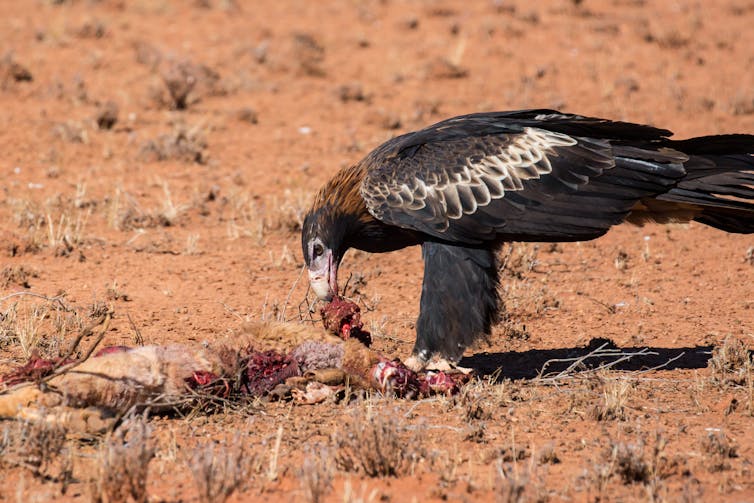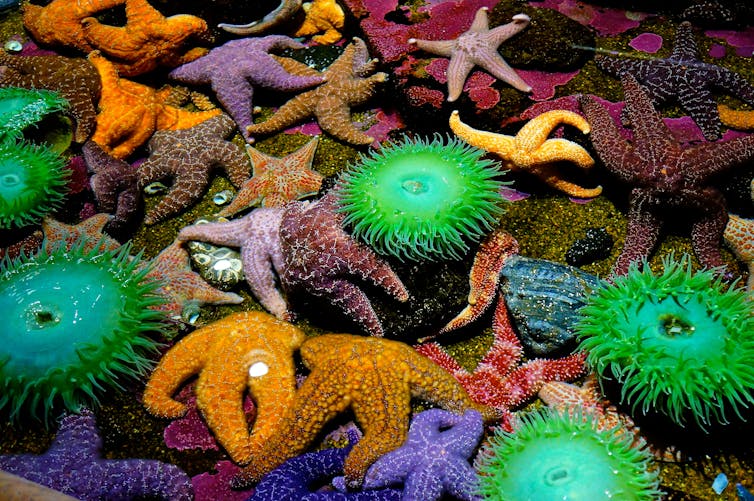By Miguel Lurgi | –
Global warming is one of the biggest threats to biodiversity worldwide. As temperatures increase, many species are forced to move to new habitats, like fish fleeing warming waters. While the fish have to adapt to new conditions elsewhere, it’s the effect that their departure has on other species that unpicks the delicate relationships that comprise ecosystems. Seabird colonies which were accustomed to finding fish in a particular place may soon find their food source has moved on to cooler waters further north.
But increasing temperatures have direct effects on individual organisms, too. Metabolism, respiration and reproduction all happen at a faster rate under warmer conditions. This means that animals reach their reproductive age faster and attain a smaller size. The average body size within populations shrinks over time as a result.
These individual changes have ecosystem-wide consequences. Experiments have shown that species don’t tend to get smaller in synchrony across the food web. Instead, prey species shrink faster relative to their predators as habitats warm, and these larger predators need to eat more of a given prey population to maintain their numbers.

FiledIMAGE/Shutterstock
Regardless of changes in body sizes, though, predators also eat more prey and they eat them faster as temperatures increase. This is because higher temperatures raise metabolic activity. This acceleration of the economy of life destabilises ecosystems and makes them more fragile to collapse. When predators eat faster, they have a larger effect on the populations of their prey, and can even drive them to extinction. This can come back to bite predators, as it limits the amount of prey available to them in the long term, increasing their own extinction risk.
Simpler communities, fewer interactions
Warming also reorganises species interactions. As their geographical ranges shift and expand in order to cope with warmer conditions, species encounter new partners in the communities they arrive in. This process favours generalist species – those organisms that can exploit a diverse range of food sources and habitat types without relying on any particular one, such as the North American raccoon, which is at home in forests or large cities.
It disadvantages specialist species with a very limited number of ecological interactions. This includes the koala, which can only eat eucalyptus leaves and live in woodland where these trees are abundant. Warming may force all species in a given area to move somewhere cooler, but only generalists are well suited to outcompeting the different species they encounter in their new home. Over time, the prevalence of generalist species increases, while specialists decline, creating a more homogeneous environment with fewer unique relationships and interactions.
Species within ecological communities interact in more ways than just their choice of food and shelter. Our task is to study how warming affects these intricate connections in particular ecosystems and across different types of interactions. In a recent study, we measured the effects of warm temperatures on species living on rocky shores along the Chilean South Pacific coast. Here, seaweed proliferates with the help of nutrients in cold water upwelling from the ocean depths. Roving creatures eat this and each other, including snails, mussels, crabs and limpets. At different times of day, the entire habitat may be submerged by tides or exposed to the air.

Dallas Reeves/Shutterstock
We found that warmer rocky shores harbour a larger number of generalist predators – those which can consume a greater range of prey species. These findings support the idea that we can expect more species with a general diet and fewer specialist consumers as environments warm. On rocky shores, this will mean that top predators, such as abalone, will affect the populations of more prey populations than they currently do, such as limpets, mussels and barnacles, and so alter the delicate balance of the ecosystem.
But competition for space between shellfish and seaweed was also lower in these warmer communities. Species have fewer competitors, as a smaller number of species with fewer interactions dominate. Here lies an ironic twist: as species compete with fewer and fewer other species, they tend to develop more intimate competitive relationships with the ones that remain. The generalists effectively specialise and exert more influence over one another’s populations.
Climate change will make the web of life simpler, with fewer but stronger connections between smaller and less picky organisms.![]()
Miguel Lurgi, Lecturer in Biosciences, Swansea University
This article is republished from The Conversation under a Creative Commons license. Read the original article.



 © 2026 All Rights Reserved
© 2026 All Rights Reserved